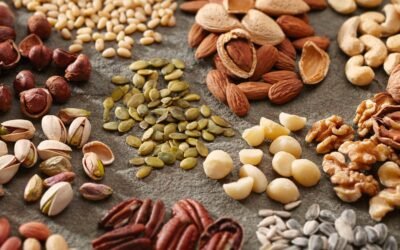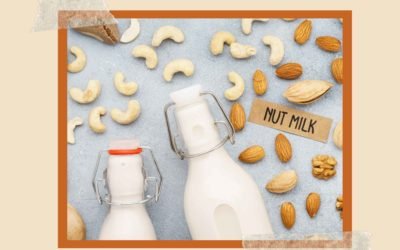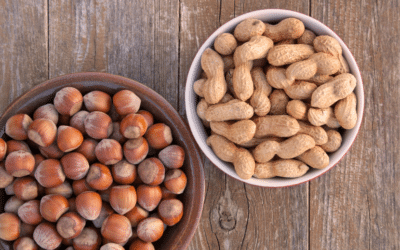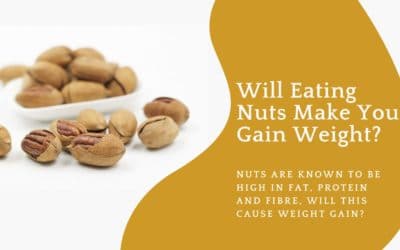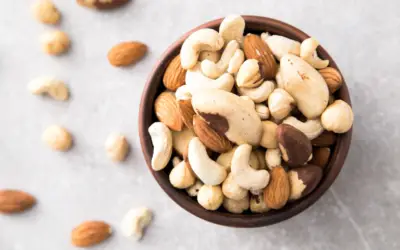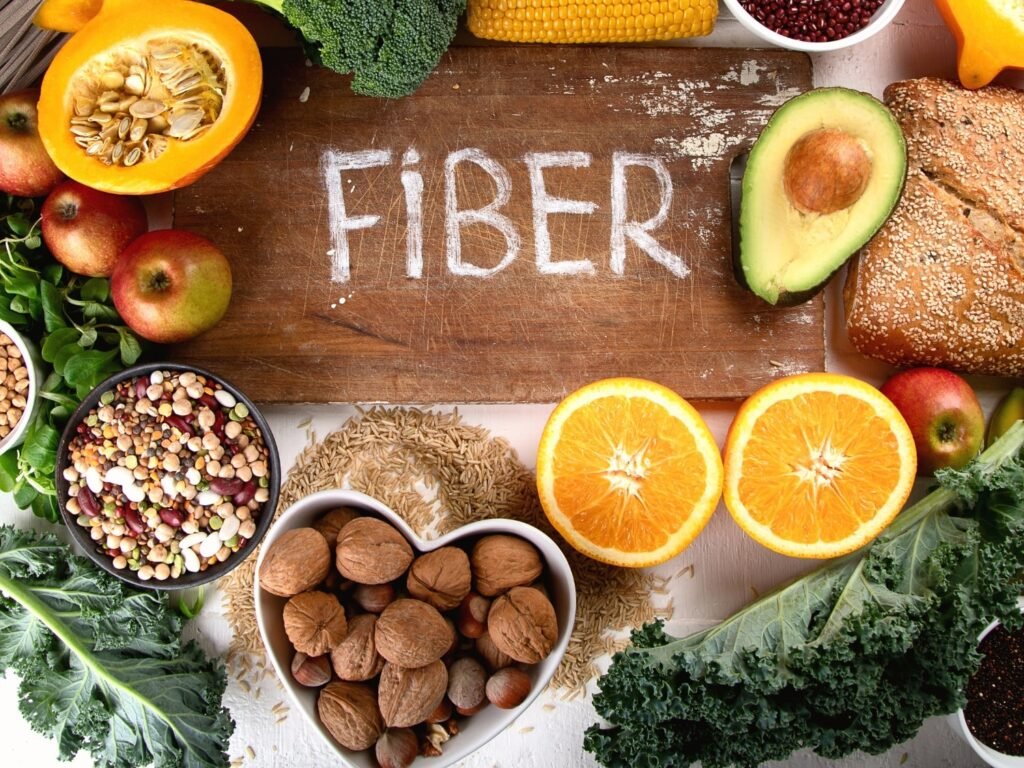
Fiber is an essential nutrient that plays a vital role in maintaining good digestive health, managing blood sugar, supporting heart health, and promoting satiety for weight control. While many people associate fiber with fruits, vegetables, and whole grains, nuts are also an excellent source of dietary fiber. Not only do nuts provide fiber, but they also bring a powerhouse of healthy fats, protein, vitamins, minerals, and antioxidants. This article explores the nuts highest in fiber, their health benefits, and practical tips on how to enjoy them.
What Is Dietary Fiber and Why Does It Matter?
Dietary fiber is the part of plant foods that our bodies cannot digest. Unlike other nutrients, fiber passes relatively intact through the digestive system. It’s classified into two types:
- Soluble fiber: Dissolves in water to form a gel-like substance. It helps lower cholesterol and regulate blood sugar.
- Insoluble fiber: Adds bulk to stool and aids in moving food through the digestive tract, preventing constipation.
Health benefits of fiber include:
- Promoting healthy digestion and regular bowel movements
- Reducing the risk of heart disease by lowering LDL cholesterol
- Helping regulate blood sugar levels and improving insulin sensitivity
- Supporting weight management by increasing feelings of fullness
- Potentially lowering the risk of certain cancers, including colorectal cancer
Nuts as a Source of Fiber
Nuts are not only nutrient-dense but also contain a good amount of fiber. Most nuts have between 2 to 4 grams of fiber per ounce (28 grams), making them a convenient and tasty way to boost your daily fiber intake.
Top Nuts High in Fiber
Here are some of the best nuts you can add to your diet to increase fiber intake, ranked by their fiber content per 1-ounce serving:
1. Almonds
- Fiber content: About 3.5 grams per ounce (23 nuts)
- Almonds are one of the highest fiber nuts and also provide vitamin E, magnesium, and healthy monounsaturated fats.
2. Pistachios
- Fiber content: About 3 grams per ounce (49 nuts)
- Pistachios are rich in antioxidants and contain more potassium than many other nuts.
3. Hazelnuts
- Fiber content: About 2.7 grams per ounce (21 nuts)
- Hazelnuts are packed with vitamin E, folate, and heart-healthy fats.
4. Walnuts
- Fiber content: About 2 grams per ounce (14 halves)
- Walnuts are known for their high omega-3 fatty acid content alongside fiber.
5. Pecans
- Fiber content: About 2.7 grams per ounce (19 halves)
- Pecans are rich in antioxidants and healthy fats.
6. Brazil Nuts
- Fiber content: About 2.1 grams per ounce (6 nuts)
- Brazil nuts are especially famous for their selenium content, a powerful mineral antioxidant.
7. Macadamia Nuts
- Fiber content: About 2.4 grams per ounce (10-12 nuts)
- Macadamias have a buttery texture and high monounsaturated fat content.
8. Cashews
- Fiber content: About 1 gram per ounce (18 nuts)
- Cashews are slightly lower in fiber but provide minerals like zinc and iron.
Health Benefits of Eating High-Fiber Nuts
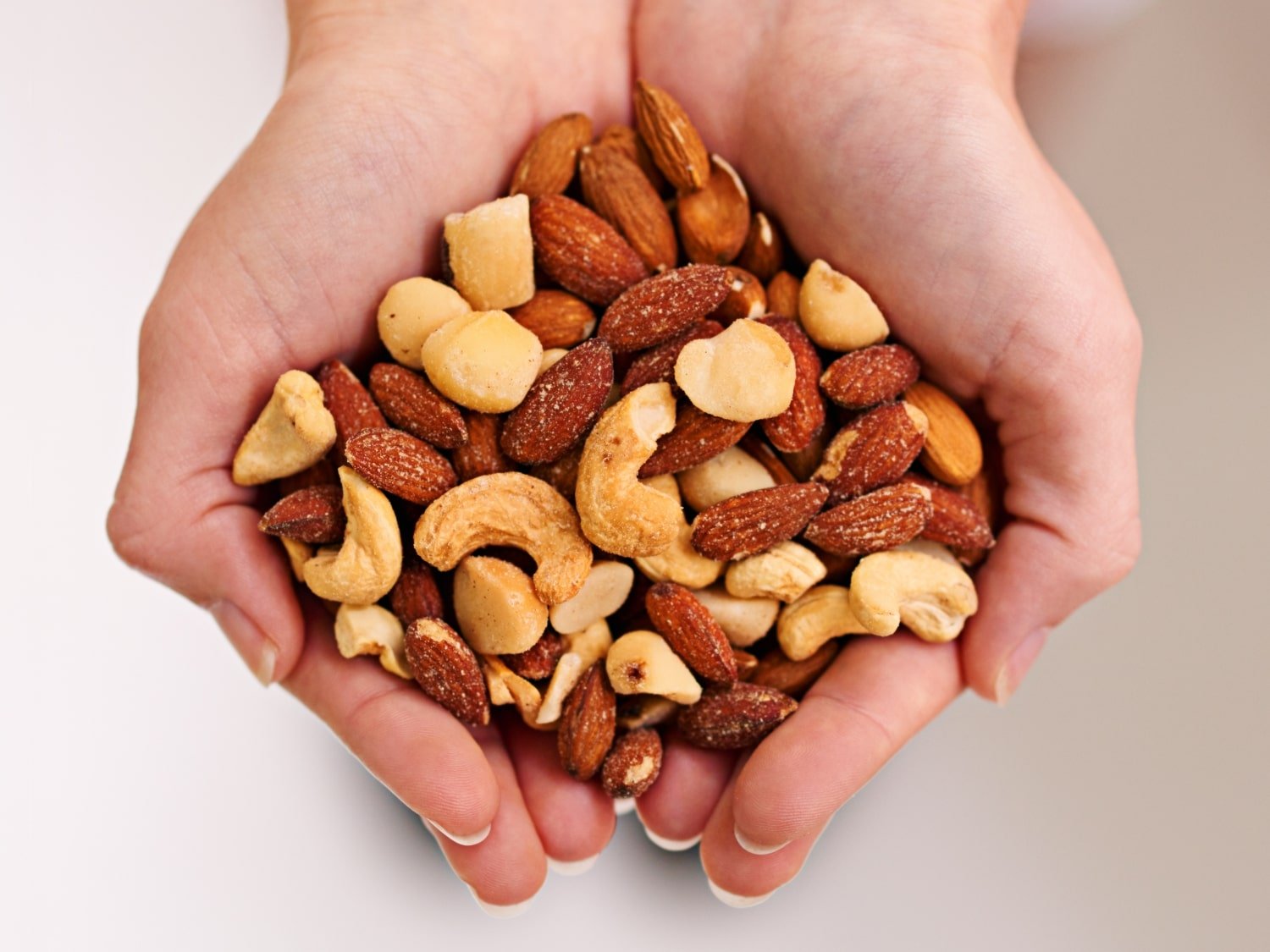
Improved Digestive Health with Nuts
One of the key roles of fiber in nuts, especially insoluble fiber, is its positive impact on digestive health. Insoluble fiber adds bulk to the stool by absorbing water as it passes through the intestines, which helps to speed up the movement of waste through the digestive tract. This not only prevents constipation but also promotes regular bowel movements. Maintaining regularity is essential for preventing digestive discomfort, bloating, and even more serious conditions like diverticulitis. Additionally, fiber serves as food for beneficial gut bacteria, supporting a balanced gut microbiome. A healthy gut microbiome has been linked to improved immune function and reduced inflammation, illustrating that the fiber in nuts contributes not just to digestion but overall wellness.
Fiber Benefits Heart Health
Dietary fiber is widely recognized for its heart-protective properties, particularly its ability to lower LDL cholesterol—the type often labeled as “bad” cholesterol because it can build up in the arteries and lead to heart disease. The soluble fiber in nuts binds with cholesterol particles in the digestive system and helps remove them from the body. This reduces total cholesterol levels and helps maintain healthy blood vessels. Beyond fiber, nuts contain healthy fats—mostly monounsaturated and polyunsaturated fats—which further support heart health by improving lipid profiles and reducing inflammation. The combination of fiber and these heart-healthy fats makes nuts a powerful ally in reducing the risk of cardiovascular diseases such as heart attacks and strokes.
Blood Sugar Regulation with Fiber
Fiber’s ability to slow the absorption of sugar into the bloodstream is particularly beneficial for blood sugar regulation. When fiber is consumed, especially in nuts, it forms a gel-like substance in the gut that slows down the digestion and absorption of carbohydrates. This process helps prevent rapid spikes and drops in blood glucose levels after meals. For individuals with diabetes or those at risk of developing it, managing blood sugar levels is crucial to avoiding complications and maintaining overall health. Incorporating fiber-rich nuts into meals or snacks can improve glycemic control, reduce insulin resistance, and support long-term metabolic health.
Weight Management with Fiber Rich Nuts
Managing weight can be challenging, but dietary fiber can play a significant role in supporting weight loss or maintenance. Fiber-rich nuts contribute to feelings of fullness, or satiety, by slowing gastric emptying and stimulating hormones that regulate hunger. When you feel fuller for longer, it reduces the urge to snack excessively or overeat during meals. Despite being calorie-dense, nuts consumed in moderate amounts can aid weight management rather than hinder it. Their fiber and protein content help stabilize appetite and prevent blood sugar swings that often lead to cravings. Including nuts as a part of a balanced diet can therefore help control calorie intake naturally and sustainably.
Nutrient-Rich Nuts
Nuts are not just sources of fiber—they are nutritional powerhouses packed with a broad spectrum of essential nutrients that contribute to overall health. Alongside fiber, nuts provide high-quality plant protein, healthy fats, vitamins such as vitamin E and B-complex, and important minerals including magnesium, potassium, and zinc. Additionally, nuts contain a variety of antioxidants that protect cells from oxidative damage and reduce inflammation. This nutrient density means that when you snack on nuts, you’re not only increasing your fiber intake but also nourishing your body with a wealth of nutrients that support brain health, immune function, skin health, and more. This makes nuts a convenient and wholesome snack option to complement any diet.
Tips for Including More High-Fiber Nuts in Your Diet
- Snack smart: Replace processed snacks with a handful of mixed nuts or a single type like almonds or pistachios.
- Add to meals: Sprinkle chopped nuts on oatmeal, yogurt, salads, or smoothie bowls.
- Use nut butters: Almond or hazelnut butter can be a tasty and fiber-rich addition to toast, smoothies, or desserts.
- Bake with nuts: Incorporate nuts into homemade granola, muffins, or bread for extra crunch and fiber.
- Watch portions: Nuts are calorie-dense, so stick to recommended serving sizes (about 1 ounce or a small handful) to avoid excess calories.
How to Consume Nuts Healthily?
While nuts are healthy, some people need to be mindful of allergies or calorie intake. Also, salted or flavored nuts may contain added sodium or sugars, which can counteract some health benefits. Opt for raw or dry-roasted nuts without added ingredients for the healthiest choice.
Nuts High in Fiber FAQ
Which nuts have the most fiber?
Among nuts, almonds and pistachios are typically the highest in fiber content, with almonds providing about 3.5 grams of fiber per ounce and pistachios around 3 grams per ounce. Other nuts such as hazelnuts, pecans, and macadamia nuts also provide good amounts of fiber but generally slightly less. Choosing a variety of these nuts can help maximize fiber intake from your diet.
Which nuts are high in fiber for constipation?
Nuts high in insoluble fiber, like almonds and pistachios, are particularly helpful for constipation because insoluble fiber adds bulk to the stool and speeds up digestion. Regularly consuming these nuts can promote smoother bowel movements and support gut health. Including nuts as part of a fiber-rich diet alongside plenty of fluids and other high-fiber foods is most effective for relieving constipation.
Which has more fiber, almonds or cashews?
Almonds have significantly more fiber than cashews. One ounce of almonds contains about 3.5 grams of fiber, whereas the same amount of cashews provides roughly 1 gram of fiber. This makes almonds a better choice if you are specifically looking to boost your fiber intake through nuts.
Are cashews and walnuts high in fiber?
Cashews and walnuts do contain fiber, but they are not as high in fiber compared to other nuts like almonds or pistachios. Walnuts provide around 2 grams of fiber per ounce, and cashews offer about 1 gram per ounce. While they contribute some fiber to the diet, their strengths lie more in their healthy fats and other nutrients rather than being top fiber sources.
Foods High in Fiber
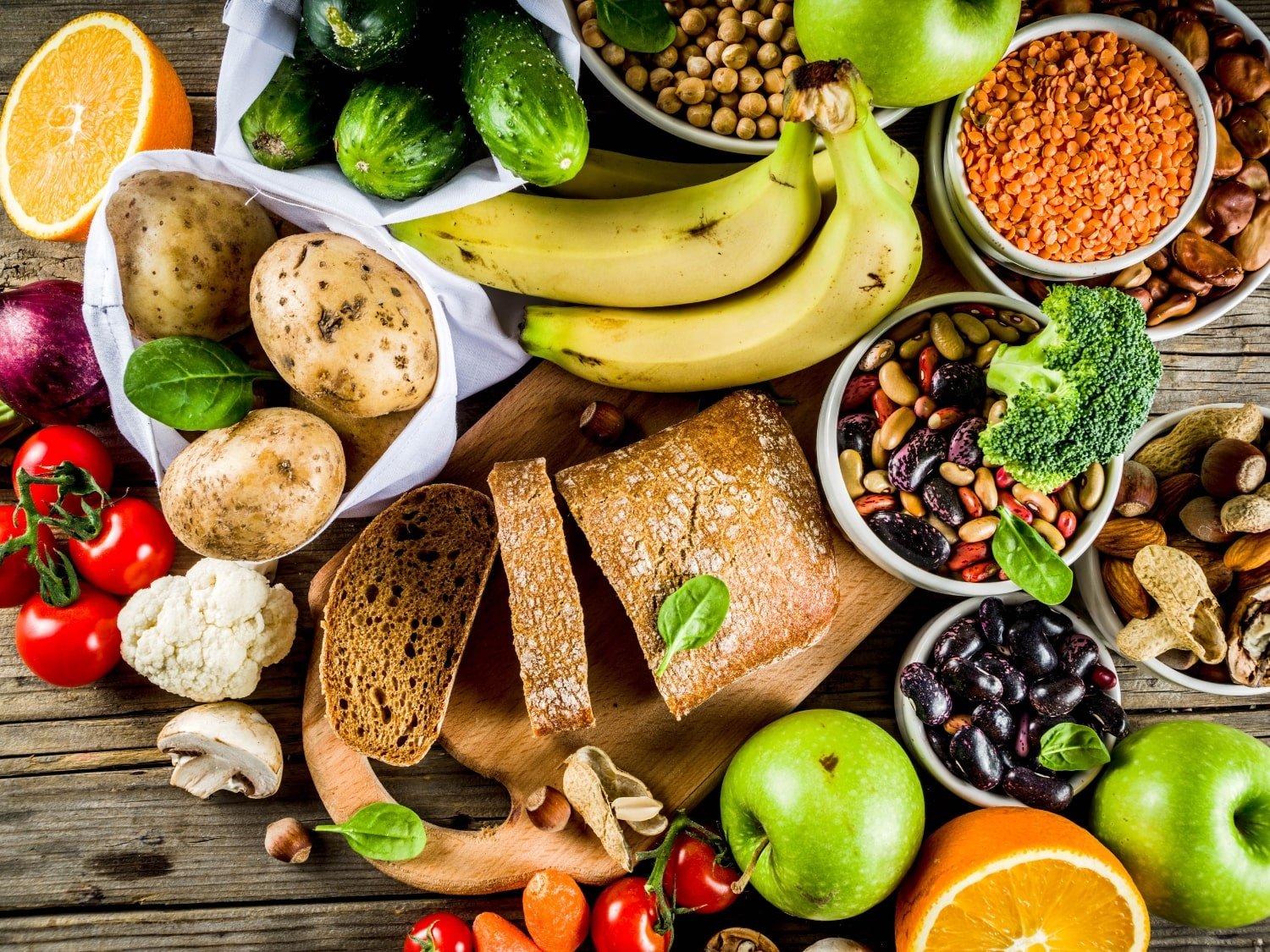
1. Legumes and Beans
- Lentils
- Black beans
- Chickpeas (garbanzo beans)
- Kidney beans
- Split peas
These are among the richest fiber sources, providing both soluble and insoluble fiber, which supports digestion and heart health.
2. Whole Grains
- Oats (especially steel-cut or rolled oats)
- Quinoa
- Brown rice
- Barley
- Whole wheat products (bread, pasta, cereals)
Whole grains retain the bran and germ, which contain the bulk of the fiber.
3. Fruits
- Raspberries
- Pears (with skin)
- Apples (with skin)
- Bananas
- Avocados
Many fruits are rich in soluble fiber, which helps regulate blood sugar and cholesterol.
4. Vegetables
- Broccoli
- Brussels sprouts
- Carrots
- Artichokes
- Sweet potatoes (with skin)
Vegetables provide a mix of soluble and insoluble fiber plus vitamins and antioxidants.
5. Other Fiber-Rich Foods
- Popcorn (air-popped)
- Psyllium husk (often used as a supplement)
- Dark chocolate (in moderation, high in fiber compared to other sweets)
Including a variety of these fiber-rich foods in your diet can improve digestion, support heart health, and help maintain healthy blood sugar levels. Remember to increase fiber intake gradually and drink plenty of water to avoid digestive discomfort.
Conclusion
Nuts are an excellent, tasty, and versatile source of dietary fiber that can support digestion, heart health, blood sugar management, and weight control. Almonds, pistachios, hazelnuts, walnuts, pecans, Brazil nuts, macadamias, and cashews are all rich in fiber and other valuable nutrients. By including a variety of these nuts in your daily diet, you can enjoy a delicious way to boost your fiber intake while benefiting from their many other health-promoting properties.

